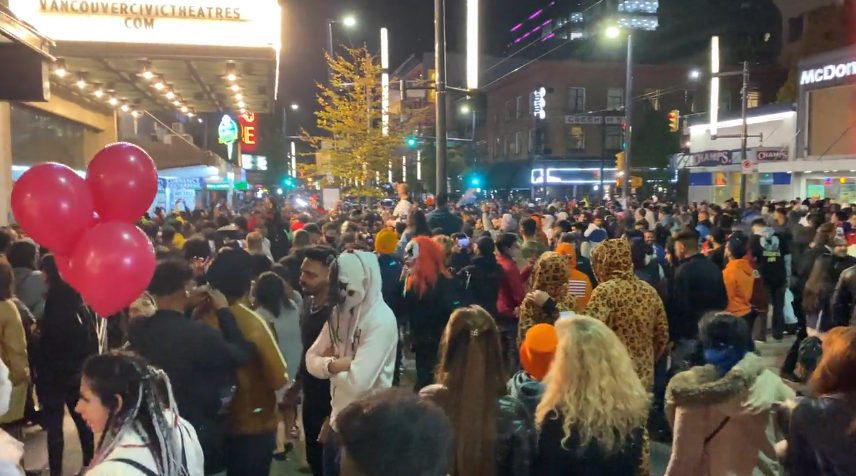The "Fragility" of Science



Yesterday was October 31, 2020. Halloween 2020. The images I posted above would be a common scene on that day any other year. People dressed up as their favourite spooky character, or as a slutty (nurse | doctor | anything) just going out and having a good time with their friends.
Unfortunately, 2020 isn't really like any other year. The scenes above will likely result in thousands of new cases of the virus that has changed much of our lives in the past months.
The scenes above will likely result in the death of someone's grandmother, or someone's father, or someone's child.
Rewinding the tapes to earlier this year, before everything started going online, I remember seeing headlines like:
"Threat of Novel Coronavirus Greatly Over Exaggerated"
"Study shows Masks not effective against COVID-19"
"COVID-19 does not pose a threat to the general public"
and for the large part, I did believe them. I read articles and papers written by people who had studied infectious diseases and epidemiology which were then cited by news outlets. The science appeared to be sound, and listening to science was far more appealing to me than listening to others who, at the time, appeared to be overreacting.
Fast-forward a few months further into the future, the same people who had advised the world that this virus wasn't anything to be concerned about were now encouraging people to stay home, to wear masks. Basically, scientists were advising people to do exactly what they had advised against in the months prior.
This is where a lot of people got upset. This is where a lot of people realized how fragile the science around this virus really was.
In the following months, people began to wear masks, avoid meeting up in large groups, and restrict themselves to a personal "bubble." Others became more outspoken about public health directive and measures, directly citing past advice about masks not being effective and calling those who took public health advice "sheep."
This, I think is the heart of the matter. People don't react well to being told X at one time, and Y at another, especially when Y contradicts X. But I think this is exactly what separates an evidence-driven approach to seeing the world from other viewpoints. This is what makes science, science. Things that we thought were true can easily be falsified if evidence to the contrary is gathered, and vice versa.
Science isn't an immutable edifice of truth. Some things that science told us were true a century ago have been disproven. Science is something far more fluid than that. It's something that gives us the ability to challenge our norms, given that we have solid evidence to the contrary. This openness to change and discovery is the only thing that separates science from blind belief.
We can't keep mistaking this for "fragility" and weakness.